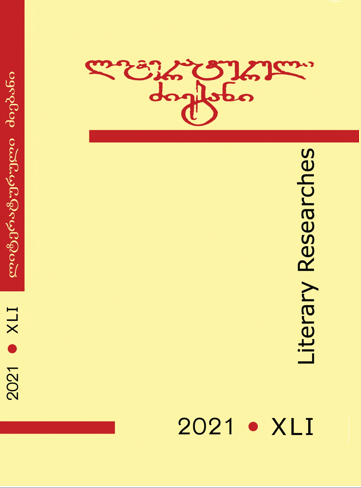The “Velvet” Decadence of Abkhazian-Georgian Aristocracy (Babo Sharvashidze’s Memoires)
Published 2021-12-20
Keywords
- Annexation of the Principality of Abkhazia,
- Mikheil Sharvashidze’s family,
- Babo Sharvashidze,
- Memoires
How to Cite
Abstract
Maia Tsertsvadze’s translation of the English language Memoires by Babo Sharvashidze (1859-1946), youngest daughter of the last Principle of Abkhazia, is the unique source about the Russian annexation of the Principality of Abkhazia, merciless repressions of the Principle and his family. The memoires cover extensive period: from the late 1860s till 1934. Babo’s sweet childhood memories were replaced by the painful loneliness after the exile of the Principle from Abkhazia to Russia and his death there: She spent 6 years in the Tbilisi Transcaucasian Institute of Nobel Women, knowing nothing about Abkhazia and her siblings. Process of russification of Georgian-Abkhazian aristocracy was ongoing. As ordered by the Regent, 14-years-old Babo was sent to Yalta, to live with the family of Anastasia Orbeliani-Gagarina; only after two years she was allowed to live with her married brother in Petersburg, who was freed from the exile. Giorgi Sarvashidze’s (1808-1898) family environment changed Babo’s life. She was accepted at the Royal Court of Saint Petersburg and by Russian aristocracy. Later she was granted the status of Maid of Honor. Because she lived with her order brother, Georgian writer and Abkhazian public figure, she was saved from final russification. In 1907, she married Baron Meyendorff, Russian scientist and political figure of German origins.
The Memoires, tell us in detail about the life of not only Georgian-Abkhazia, but also of Russian aristocracy and the Royal Court. After the October Revolution, the husband and wife lived in Latvia, Germany, Finland and eventually settled in England. Highly educated, fluent in five languages, having writing talent, Babo started writing her memoires in England in 1929 and finished in 1934. She passed away in England. We must be thankful to Meyendorff that he enriched his wife’s memoires with photos and sketches and preserved them for Georgian and Abkhazian readers.

